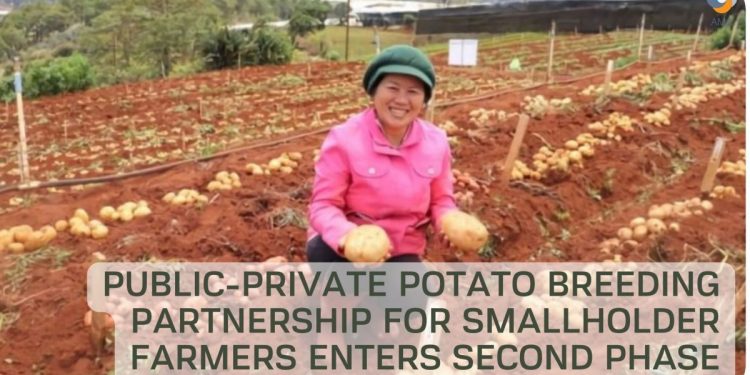The International Potato Center (CIP), the globally active Dutch seed potato company HZPC, and the Syngenta Foundation for Sustainable Agriculture (SFSA) announce the launch of a second, five-year phase of their partnership to develop climate-resilient potatoes for tropical and subtropical conditions.
CIP and HZPC will combine their experience, resources and germplasm to breed and select potato varieties suitable for farmers in tropical and subtropical Asia. The first varieties will be commercialized in Vietnam, but it is anticipated that varieties will be subsequently released in other tropical regions.
This public-private partnership demonstrates the organizations’ shared goal of increasing the quality, choice and affordability of potatoes for smallholder farmers and the growing populations of developing countries.
Under the agreement, CIP and HZPC will collaborate on research and development. HZPC will also apply its expertise in the commercialization of potato varieties and seed potatoes. CIP will contribute its experience in the development of varieties for sustainable production in the tropics.
Both HZPC and CIP are contributing potato germplasm for breeding. Their scientists aim to combine the best traits from HZPC’s commercially successful potatoes, developed for temperate regions, and resilient potatoes that CIP has bred for smallholder farmers in tropical regions, for local production.
SFSA will provide funding to CIP for the initiative, and its scientists will contribute their expertise in developing markets and sustainable seed delivery pathways for smallholder farmers. The resulting robust, market-preferred varieties will enable smallholders to raise their yields and income.
Oscar Ortiz, Director General i.a. of CIP:
“It is a privilege and great opportunity for CIP to combine forces with HZPC and SFSA for the benefit of smallholder farmers in the developing world.”
While helping improve farmers’ livelihoods, the partnership is breaking ground in connection with the International Treaty on Plant Genetic Resources for Food and Agriculture, or Plant Treaty. It is the first such agreement in which partners have committed to contribute a percentage of the income from royalties to the Treaty’s benefit-sharing fund.
The Plant Treaty is an international agreement with 139 signatory countries. Its aim is to guarantee food security through the conservation, exchange and sustainable use of the world’s plant genetic resources for food and agriculture. The CIP gene bank safeguards and distributes potato and sweet potato germplasm with organizations around the world in accordance with the Treaty.
Michael Robinson, Chief Science Advisor of SFSA:
“SFSA is pleased to support this ground-breaking, large initiative, which combines the skills and resources of the public and private sectors to deliver the potato varieties that smallholder farmers in the tropics need.”







